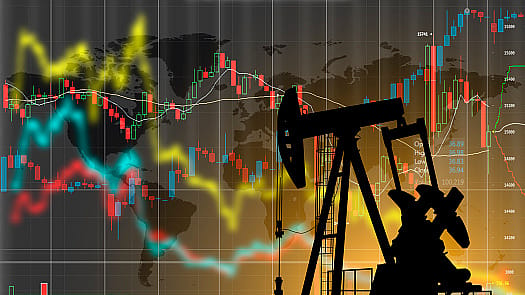Brent crude over $100 will cost India ₹1 lakh crore next fiscal: SBI
ADVERTISEMENT

High crude oil prices can cost the government around ₹1 lakh crore in the next financial year if the Centre continues to levy the reduced excise duty on petrol and diesel, according to a report by SBI Research.
While the price of Brent crude jumped over $100 a barrel as Russia began its invasion in Ukraine, state-run oil marketing companies have yet to increase petrol and diesel prices amid polls in states like Uttar Pradesh.
The government had cut excise duty on petroleum products in November 2021 to prevent the prices of petrol and diesel from rising. The informal freeze on fuel prices is expected to continue till the last ballot is cast on March 7.
"Interestingly, petrol and diesel prices have not changed since Nov’21. Based on the existing VAT structure and taking Brent crude price of $100/bbl.-$110 bbl., diesel and petrol prices should have been higher by ₹9-14 each as of now," Soumya Kanti Ghosh, Group Chief Economic Adviser at SBI, writes in the report.
However, if the government reduces the excise duty on petroleum products further by ₹7 per litre and prevent the prices of petrol and diesel from rising, then it will incur excise duty loss of ₹8,000 crore per month, the report says. "And if we assume that the reduced excise duty continues in the next fiscal and assuming petrol and diesel consumption grow around 8-10% in FY23, then the revenue loss of the Government would be around ₹95,000 crore to ₹1 lakh crore for FY23."
On the Russia-Ukraine conflict, the report says its impact will be felt across commodities and asset classes. "Oil prices have already crossed $100 per barrel. Other commodities which will see inflation include precious metals gold, palladium and platinum. Ukraine being an important exporter of agriculture products, there will be an impact on prices of wheat and corn if navigation lines in Black Sea are disturbed."
For India which has no strategic interest in this conflict the fall out will be mostly economic, SBI's report says. "Rise of commodity prices will impact CAD and domestic inflation. The export outlook of services towards Europe will be impacted negatively. Sanctions on Russia may impact regular trade."
Ghosh, however, pointed out the chances of much larger escalation look less at this point in time. "The current escalation most likely will progress on a similar template seen in Georgia and Crimea, a swift action to secure certain strategic objectives which in Russian viewpoint are non-negotiable," he adds.
The report further says that if crude oil prices are at an average of $100/bbl., inflation is likely to increase by 52-65 basis points. Every $10/bbl increase in Brent crude price will lead to increase in inflation by 20-25 bps, it adds.
This comes days after India's benchmark inflation rate, calculated by the Consumer Price Index (CPI), rose to a seven-month high of 6.01% in January 2022. This was marginally above the 6.0% upper threshold of the monetary policy committee's medium term forecast range of 2-6% for the first time since June 2021. The Consumer Price Index-based inflation stood at 5.56% in December 2021.